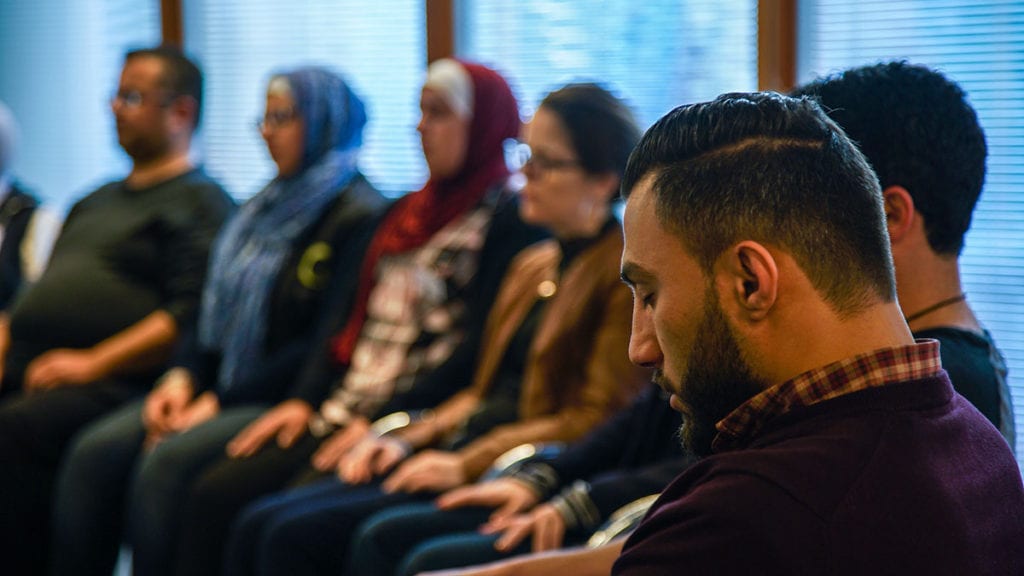Reflections on the CBR Training in Jordan
By Helen Barley for Garrison Institute International“Because of this work, I lost the taste of food and the taste of life”
These were the words spoken by Ahmad*, who has spent the last few years managing Child Protection and Sexual and Gender Based Violence (SGBV) cases with Syrian refugees in Jordan. Over our lunch together, he explained how the stories of human suffering he had heard stayed with him and caused him to feel numb.
Ahmad was one of more than 60 humanitarians who benefited from Practical Stress Management training sessions delivered by CBR in Jordan in March 2019. Staff working in Syria, Jordan, Turkey and Palestine came together to explore how they could better understand and manage the inherent stresses of their daily work.
Shared stressors
The CBR Training provided a good opportunity to take the pulse of the humanitarian environment in the region and to check in with how the people at the forefront of the response were faring.
What emerged is that local, national and international humanitarian staff working across all levels and functions – Directors, Programme Managers, Counsellors, Case Workers, Project Officers, HR Officers, Accountants – shared the common experience of feeling over-stressed and under-supported. Some of the common pressures they face include:
- Tight deadlines and constant heavy workloads
- Poor communication
- Unsupportive colleagues and managers
- Insecure contracts
- Stigma around taking annual leave or holiday time
Constant exposure to these stressors has left these humanitarian staff feeling demotivated, physically and emotionally fatigued and on the brink of burnout.
Responding to stress
A particularly impactful aspect of the training was the Physiology of Stress session, which provided an insight into what happens in the body and the brain during periods of stress. For many participants, this was the first time they realised that although they cannot avoid or escape stress, they have the ability to change how they respond to it:
“Between stimulus and response there is a space. In that space is our power to choose our response. In our response lies our growth and our freedom.” -Viktor Frankl
It was incredibly humbling to be present with these individuals as they started to explore how they could access this space within themselves, through guided meditation and mindful movement practice.
Following the meditation practice, Ahmad shared that this was the first time he had slowed down and focused on his inner experience: “I felt my body and soul coming together through the meditation,” he said behind tired eyes, “I need more of this in my life”.
Seeing the impact of the CBR approach on Ahmad and other humanitarians provided a stark reminder of the need for such support. To address this, the humanitarian sector must standardise support for staff wellbeing so that it is no longer a luxury provided to the few, but a responsibility which reaches and benefits all humanitarians.
*Name changed for confidentiality purposes
The Contemplative Based Resilience (CBR) Project aims to cultivate
a more compassionate and resilient humanitarian system, through the provision of high quality training and ongoing support to humanitarians. CBR Training for International Aid workers that is taking place outside of the United States runs under the direction of Garrison Institute International, headquartered in The Hague in the Netherlands.
